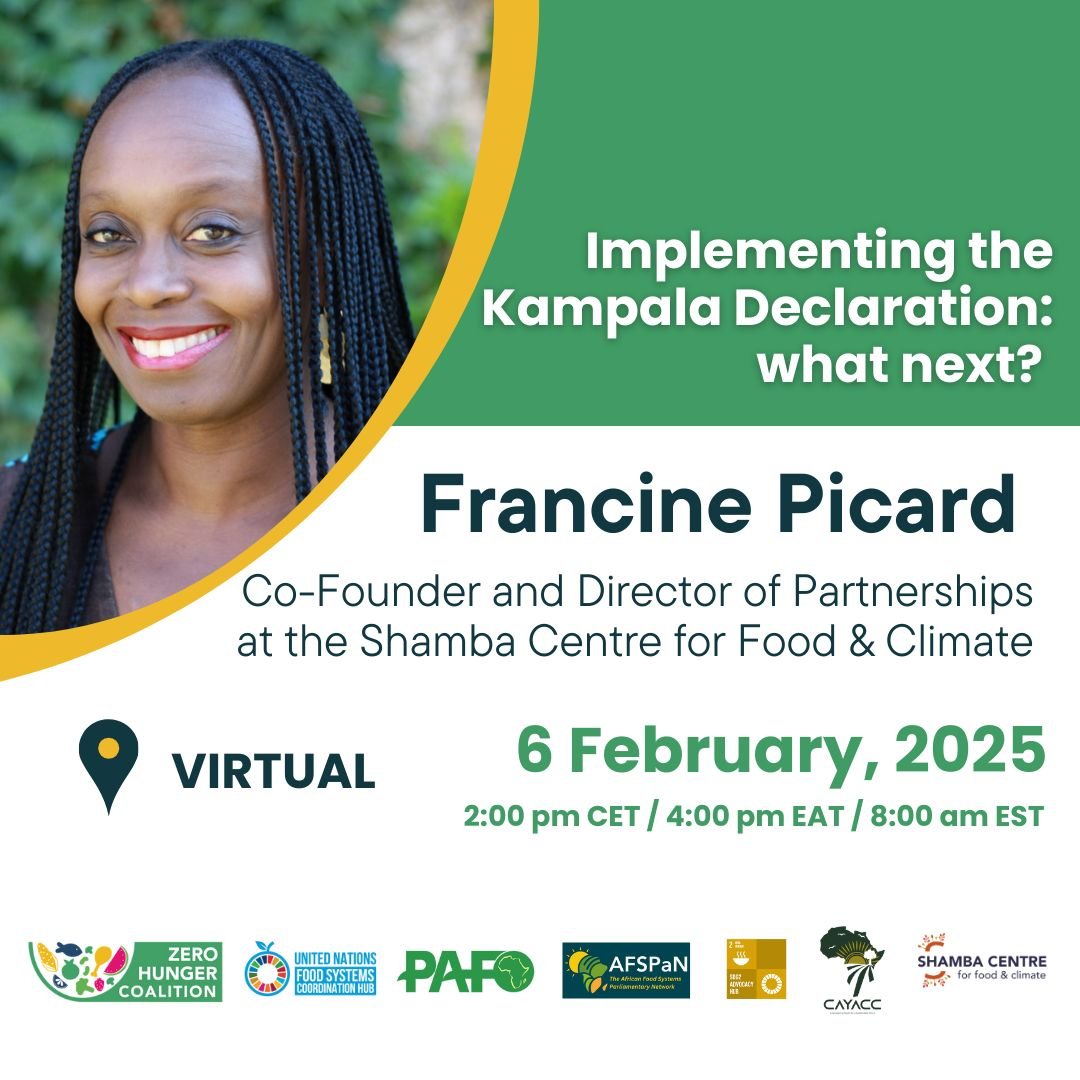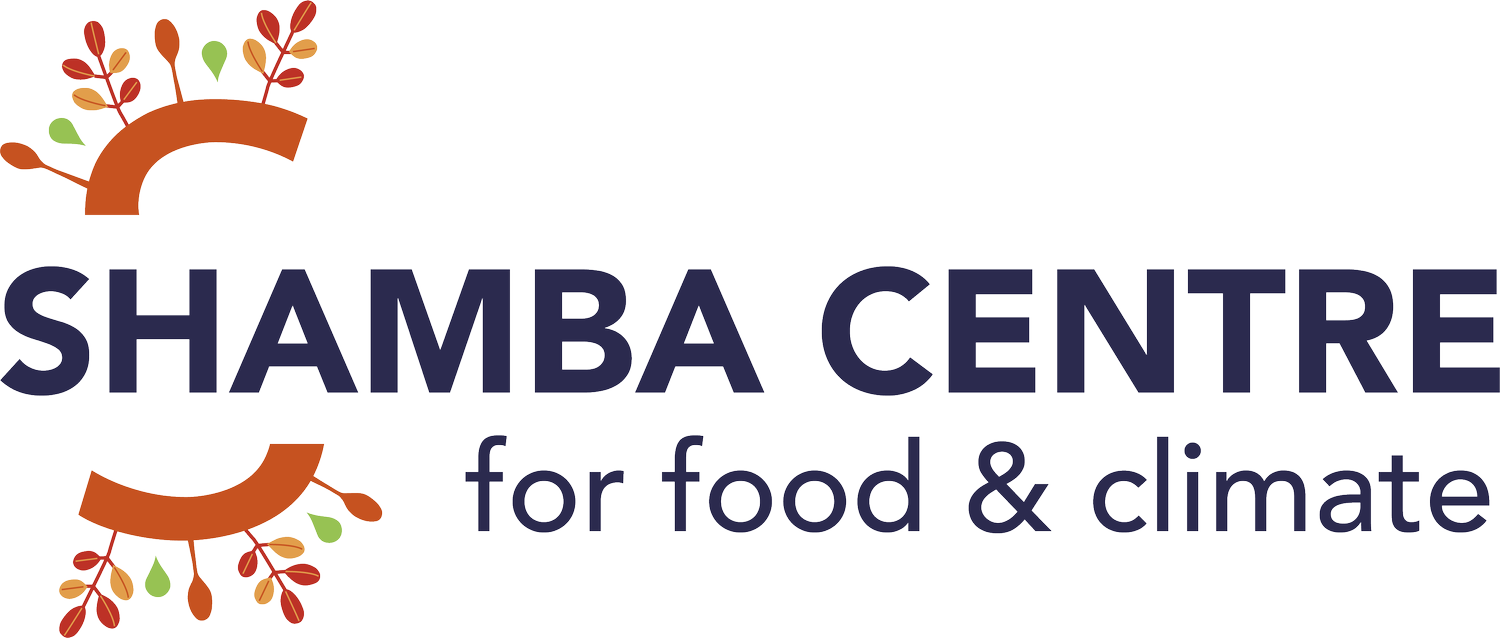Events
Events featuring the participation of the Shamba Centre.
-

Inaugural meeting of expert consultation with DFIs and blended finance
Our expert consultation and evidence review of how development finance institutions (DFIs) are innovating to use their capital more efficiently will officially launch with an inaugural meeting on 13 January in Brussels.
This inaugural meeting will share preliminary examples on how DFIs are adopting innovative approaches in their investments in high-risk countries in the food and agriculture sector. It will also outline next steps for deepening engagement with DFIs to better understand their ongoing innovation under the EU Global Gateway. -

Moving to the trillions: catalytic strategies to increase development finance
Join our side event in Sevilla to discuss innovative finance models that will increase the catalytic potential of overseas development assistance and that will significantly increase blended finance for sustainable development.
These strategies will also increase the flow of financing to SMEs, small-scale farmers, landowners, and nature-based solution providers that often face severe difficulties in accessing blended and private money.
-

Ceres2030 Deep Dives – From evidence to action
During this virtual event, Shamba Centre Co-founders, Carin Smaller and Francine Picard, presented the findings from the Ceres2030 Deep Dives into Food Systems, Climate Change, and Diets, organised by GIZ’s Knowledge for Nutrition (K4N) programme in collaboration with the Shamba Centre for Food & Climate.
Building on the original Ceres2030 – Sustainable Solutions to End Hungerstudy, these Deep Dives provide evidence-based, cost-effective interventions for transforming food systems, enhancing climate resilience, and improving diets.
-

Webinar: Implementing the Kampala Declaration
Join our Co-Founder and Director of Partnerships, Francine Picard, as she moderates a panel discussion focused on implementing the ambitious targets endorsed by the 55 African Union member states in the new CAADP Strategy and Action Plan 2026–2035.
Under the aegis of the Zero Hunger Coalition, this webinar is co-organized with the UN Food Systems Coordination Hub, PanAfrican Farmers Organization, the Africa Food Systems Parliamentary Network, Shamba Centre, SDG2 Advocacy Hub and the Consortium of African Youth in Agriculture and Climate Change.
-

Webinar with the GDPRD: Financing Food and Rural Development
The Shamba Centre co-hosted a webinar with the Global Donor Platform for Rural Development (GDPRD) to discuss the recently released SOFI 2024 report and its implications for donors and development partners.
Co-Founder Oshani Perera participated in the panel and discussed the need for structural reforms to ease the ability of domestic banks to lend to farmers supplying domestic markets.
-

Reforming competition regimes in Africa for sustainable food systems
Carin Smaller participated in a panel discussion on the need for competition to ensure resilient, inclusive and sustainable food systems. She also presented the key findings from the Shamba Centre’s recent publication Empowering African Food Producers and Agricultural Enterprises through Stronger Competition Law and Policy.
-

WTO Symposium on Illicit Trade in Food and Food Fraud
Carin Smaller moderated a panel discussion for the session on the business perspective to illicit trade in food and food fraud.
The Symposium sought to better understand the landscape of illegal trade, and how the WTO rule-book could contribute to stopping illegal practices.
-

Making Domestic Financing Work Harder: The Enabling Environment for Food and Agriculture
During COP 28, the Shamba Centre co-organized an event that explored how countries in Sub-Saharan Africa can crowd-in their domestic investors. The event took place on 8 December and was co-organized with the African Development Bank, African Food System Parliamentary Network (AFSPaN), Congo Basin Climate Commission, and the Government of Congo.
Watch it on Facebook
-

Transforming food systems in Africa through youth-led reform of competition policy
Competition law and policy used effectively can contribute to fair, resilient and sustainable food systems. To better understand how youth action can trigger reform of competition law and policy, the Shamba Centre for Food & Climate, together with the African Climate Foundation and the Centre for Competition, Regulation and Economic Development, organized a virtual side-event as part of the World Food Forum.
-

Unleashing the Catalytic Power of Donor Financing to Achieve SDG 2
The Shamba Centre presented the preliminary results of the enquiry on sustainable finance during a special session at the GDPRD Annual General Assembly.
The enquiry explored how donors can be bolder with their financing to increase development impacts while crowding-in development finance institutions and private investors.
-

Innovative approaches to sustainable finance for food systems transformation
The Shamba Centre for Food & Climate, together with the Global Donor Platform for Rural Development, presented the results of new research on how donors can develop value-added partnerships with public and private funders to drive investment in smallholder commercial agriculture.
This official CFS Side Event took place on 23 October from 13h30 to 14h45 CET.
-

Innovative donor approaches to sustainable finance for food system transformation
The Shamba Centre jointly organised with the GDPRD a virtual side event during the UN Food Systems Summit +2 Stocktaking Moment on 24 July from 18h00-19h00 CET.
This side event provided insight from donors on how they are balancing competing demands and interests in a difficult geopolitical and economic environment. It also explored their initial steps in innovative finance, including the topic of ‘pay for performance’ and blended finance,
-

Infopoint conference: Transforming Food Systems - healthy diets from a healthy planet
How can the EU help to promote the shift towards healthier diets within sustainable food systems, including through more sustainable protein sources, nutrition-sensitive value chains, and less food waste?
The Shamba Centre’s Executive Director, Carin Smaller, and Director of Partnerships, Francine Picard, provided the results of a recent report they co-authored on transforming food sytems sustainably.
-

Reforming competition law and policy to empower MSMEs in the agri-food system
How can we empower MSMEs in the agri-food system?
A new study by the Shamba Centre for Food & Climate explores pathways to reforming competition law and policy in African countries to regulate unfair market power in the food system and empower MSMEs.
Watch the recording here.
-

Hungry for Action Webinar: Freeing the Funds to Tackle the Food Crisis
A lineup of experts delved deeper into how we can unlock the funding needed for emergency humanitarian support and long-term investment to transform food systems.
Co-founder Francine Picard, shared her views on how funds could be freed to Ethiopia, Malawi, and Nigeria.
-

Innovative grassroots nature-based solutions webinar
The Shamba Centre is collaborating with Witteveen +Bos, the award-winning designers of nature-based solutions (NBS). We are exploring applications of NBS in agriculture, aquaculture, and the restorations of ecosystems that provide the fundamentals for ending hunger.
Watch the recording here.
-

How USD 10 billion can transform food systems in Ethiopia, Malawi & Nigeria
IFPRI, IISD and the Shamba Centre organized a policy seminar to present the results of the report "Achieving Sustainable Food Systems in a Global Crisis: Country roadmaps to end hunger, double farmer incomes, improve diets, and protect the climate.”
Watch the recording here.
-

Women Driving Food Systems Transformation
What insights and innovative solutions can we gain from the experiences of influential women driving food systems transformation?
Our panel featured influential women who have positively impacted agriculture and food systems. They shared their inspiring journey of adapting to challenges, fostering innovative thinking, and empowering their peers.
Watch the recording here.
-

Can Nature-Integrated Aquaculture Help Achieve Zero Hunger?
Webinar
The Shamba Centre hosted a webinar on best practices for building sustainable aquaculture designs that integrate and complement nature-based solutions.
Watch the recording here.
-

Securing the world's food supply through innovative processes
Carin Smaller, Executive Director of the Shamba Centre, spoke at the public hearing in the Committee on Economic Cooperation and Development of the German Bundestag on November 30th, 2022. here
She presented 3 innovations addressing the African productivity gap, the problem of food loss and waste and finally the use of land and water, climate change and deforestation
Watch her intervention and read the full statement.
-

Shamba Centre Launched!
Shamba Centre launched virtually on Tuesday 18 October, 16-17 CEST.
Attendants found out who we are, what we stand for, and how we plan to change the world. The three co-founders Carin Smaller, Francine Picard, and Oshani Perera, along with an all-star line-up covered topics such as better and increased investment, the empowerment of SMEs, and the role of blended finance for sustainable agriculture and food systems.
Watch the message from our thought leaders.
-

Zero Hunger Coalition’s side event at CFS50
Side Event 4 | Achieving Zero Hunger: What can Governments and the private sector do in the face of a multidimensional crisis?
What do governments need to do to mobilize more resources and spend them better?
Watch the recording of the session.
-

Mobilizing efforts to strengthen research and policy responses to the global food security crisis
Co-founder and director of partnerships Francine Picard participated in the policy seminar organized by the German Federal Ministry for Economic Cooperation and Development (BMZ), CGIAR, and IFPRI.
It analyzed the impacts of the Russian war on Ukraine on food security in low- and middle-income countries, as well as on policies and research.
Watch the recording here.
-

Ministerial Conference "Uniting for Global Food Security"
Watch Carin Smaller open the international ministerial-level conference "Uniting for Global Food Security", held on June 24, 2022. The conference brought together ministers and representatives from a diverse group of countries, including the G7, the UN Global Crisis Response Group Champions, key donor states, and the most vulnerable and affected countries, as well as leaders from international organizations such as the UN and from civil society.

